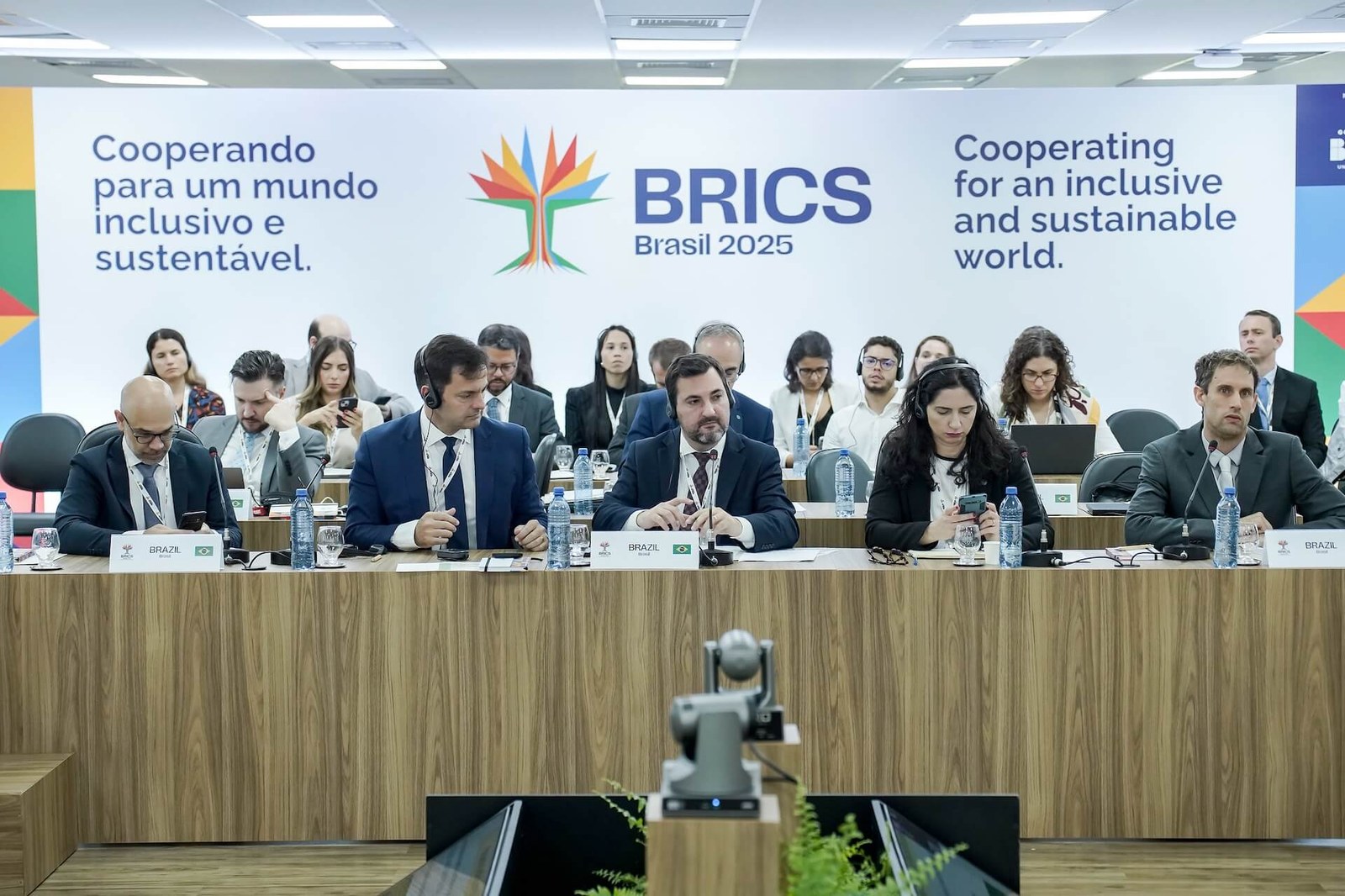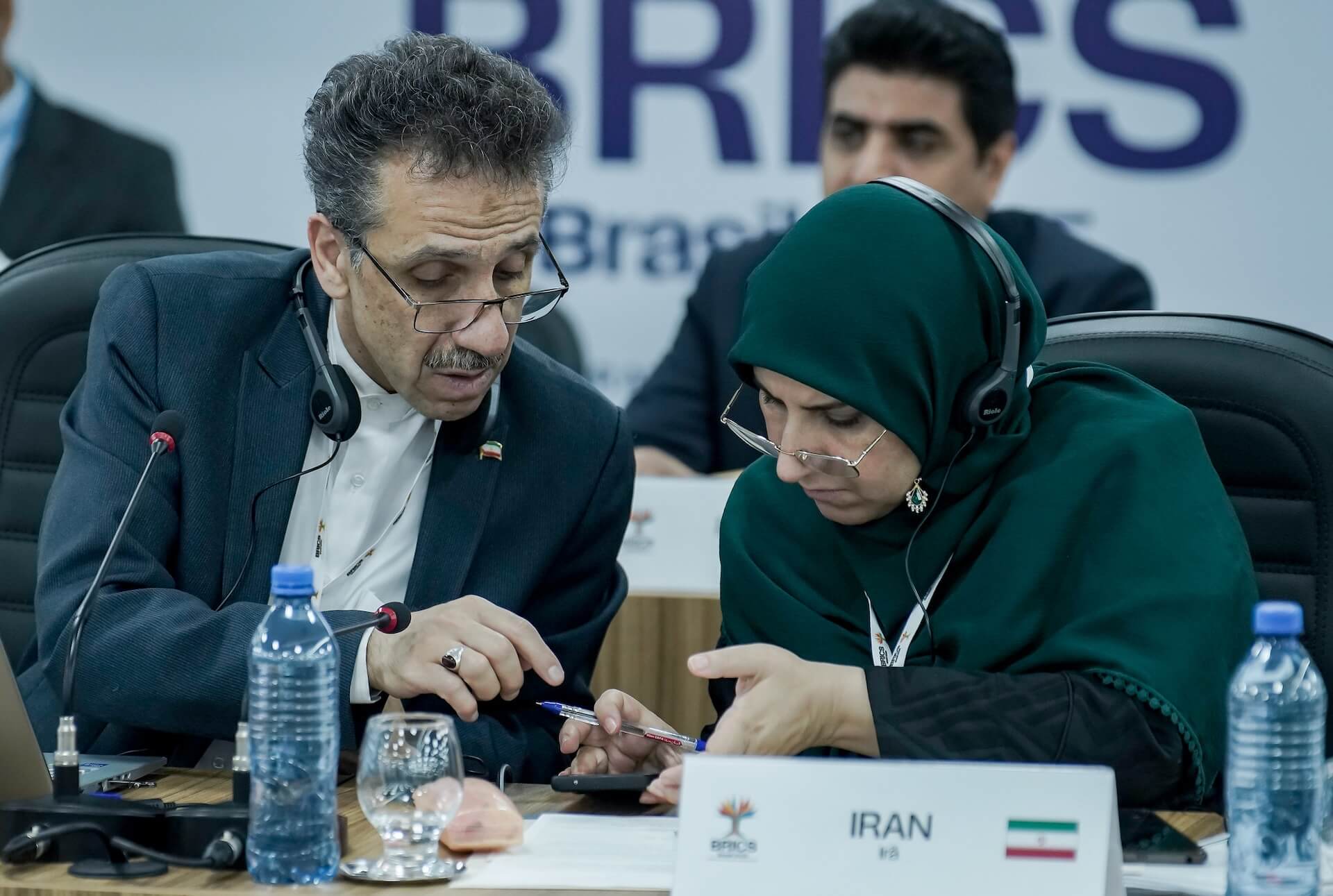Soil recovery and food safety guide BRICS discussions on agriculture
After intense negotiations, the 2nd meeting of the Agriculture Working Group closed its activities with consensus for the group’s ministerial declaration. The meeting with the ministers is scheduled for Thursday, April 17, in Brasilia.

By Mayara Souto | mayara.souto@presidencia.gov.br
The second meeting of the Agriculture Working Group (AWG) ended on Wednesday, April 14, with consensus on the BRICS priorities for the subject, under coordination of the Brazilian ministries of Agriculture and Livestock (Agricultura e Pecuária/MAPA), Agrarian Development and Family Farming (Desenvolvimento Agrário e Agricultura Familiar/MDA), and Fisheries and Aquaculture (Pesca e Aquicultura/MPA). The meeting resulted in two documents agreed upon by the eleven member countries of the group: the ministerial declaration and an attachment that addresses the restoration of degraded lands. The proposal will be presented at the meeting of ministers of Agriculture this Thursday, April 17, at the Itamaraty Palace, in Brasilia.
“We have advanced, and this is the reason for Attachment 1, on the partnership for soil restoration. The need to advance the restoration of degraded lands was a strong consensual issue among the participants. Because, on average, 30% of the lands globally are currently degraded. It is something that can help, from the standpoint of increasing agricultural production, agricultural and livestock productivity, and to do it in the most sustainable way possible, in line with what the 21st century requires, with modernity, with what we believe about sustainability,” explained Luís Rua, secretary of Trade and International Relations at the Brazilian Ministry of Agriculture, who coordinated the three-days meeting of the BRICS, since last Monday (14).
According to Rua, Brasil has led the soil recovery agenda through the example of the National Program for the Conversion of Degraded Pastures (Programa Nacional de Conversão de Pastagens Degradadas), which foresees the recovery of 40 million hectares of degraded lands in 10 years. “This basically corresponds to a territory larger than that of Germany,” summarized the secretary.
Soil recovery contributes to sustainable agriculture, water regulation, carbon capture, biodiversity, and food safety, which is also one of the BRICS priorities in Agriculture.
International example

Food security actions promoted by Brasil were taken as an example by other countries during the WG discussions. Among them is the Global Alliance against Hunger and Poverty, launched during the G20 last year. Currently, among BRICS members, only Iran has not formally adhered to this international commitment. Nevertheless, the country recognizes the importance of having public policies directed at the matter.
“We strive to increase food security for the people of Iran in all four pillars of food security: food availability, access to food, improved nutrition and diet, and, lastly, the sustainability and resilience of the food system. Hence, every proposal from the BRICS is in line with the Iranian strategy to improve food security and sustainable agriculture in Iran,” stated Ali KianiRad, Head of the Agricultural Planning, Economic and Rural Development Research Institute of Iran’s Ministry of Agriculture.
The Brazilian Presidency has once again brought the issue to the forefront of international discussions, as countries in the Global South are the most affected by hunger, according to data from the United Nations Food and Agriculture Organization (FAO). Between 2015 and 2023, the global rate of moderate and severe food insecurity rose from approximately 21.5% to nearly 30%. In contrast, North America and Europe saw a slight decrease, from 9% to 8.7%, despite an upward trend beginning in 2019. These figures highlight how countries like the BRICS members are among the most impacted by hunger.
Family farming
Part of the solution pointed out by the Agriculture WG to face the reality of food insecurity in the Global South lies in the promotion of family farming.
“Strengthening family farming came up as one of the priorities, with highlights to increasing dialogue about public policies that guarantee access of small-scale producers to the instruments required to prosper: safe access to land, credit, technical assistance, insurance, and markets. These elements are the foundation of the rural economy and national food safety,” stated Thomas Patriota, head of the International Advisory at the Brazilian Ministry of Agrarian Development and Family Farming, who opened the 2nd meeting of the WG.
The goal is to incorporate exchanges of experience on the topic into the 2025–2028 Action Plan, which will be presented at the BRICS Leaders Summit this July in Rio de Janeiro. The document will outline practical targets across four key areas: food security, sustainable production, innovation and agricultural financing, and the facilitation of international trade in agricultural products.
The choice to prioritize smallholder farmers, presented by the Brazilian BRICS Presidency, was also welcomed by the representatives of other delegations, including the Ethiopian Ambassador, Leulseged Tadese Abebe.
“Agriculture is a very important issue for Ethiopia. We are the second most populous country in Africa, the third-largest economy in Sub-Saharan Africa, and the largest in West Africa. So, given the size of our population, the crucial role of agriculture is clear — it is, in fact, one of the pillars of our economy. That is why, in our ten-year development plan, we have prioritized food security and the modernization of the agricultural sector, particularly by increasing the production and productivity of family farmers. This focus — boosting the productivity of smallholder farming — is extremely relevant for Ethiopia,” said the Ambassador.
Cooperation
In line with this, the Agriculture WG also advocated for strengthening national food storage strategies, as well as for a coordinated BRICS initiative to manage food reserves in times of crisis.
“In times of uncertainty — driven by climate shocks, conflicts, or market instability — food reserves play a vital role in ensuring stability and equity within food systems. They act as a buffer against shortages and as a tool to guarantee fair prices for producers and affordable prices for consumers, especially during periods of inflation or crisis,” said Patriota, representing the Brazilian Ministry of Agrarian Development.
Also with the goal of uniting the Global South countries, the group also discussed implementing electronic certification for animal- and plant-based products. “This is a modernization strategy —a way to facilitate trade that will certainly support commercial transactions among BRICS members. It was clear that this is a priority issue, and there is already consensus among all members of the bloc,” celebrated Luís Rua.
The definitions agreed upon at the Agriculture WG will be taken to the ministerial meeting, scheduled for Thursday, April 17, at the Itamaraty Palace, in Brasilia. Brasil will be represented by ministers Carlos Fávaro (Agriculture and Livestock) and Paulo Teixeira, Agrarian Development and Family Farming, as well as Rivetla Edipo Araujo Cruz, Executive Secretary of the Ministry of Fisheries and Aquaculture.